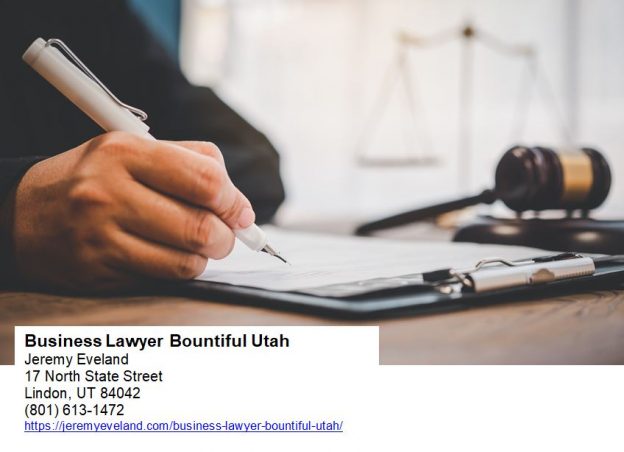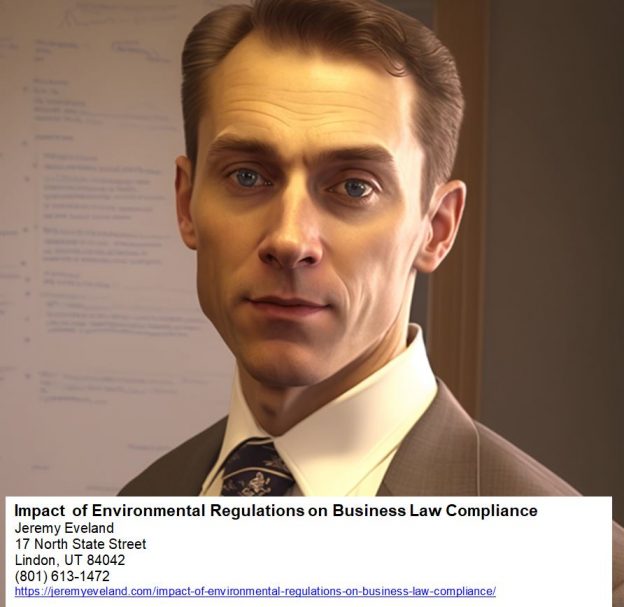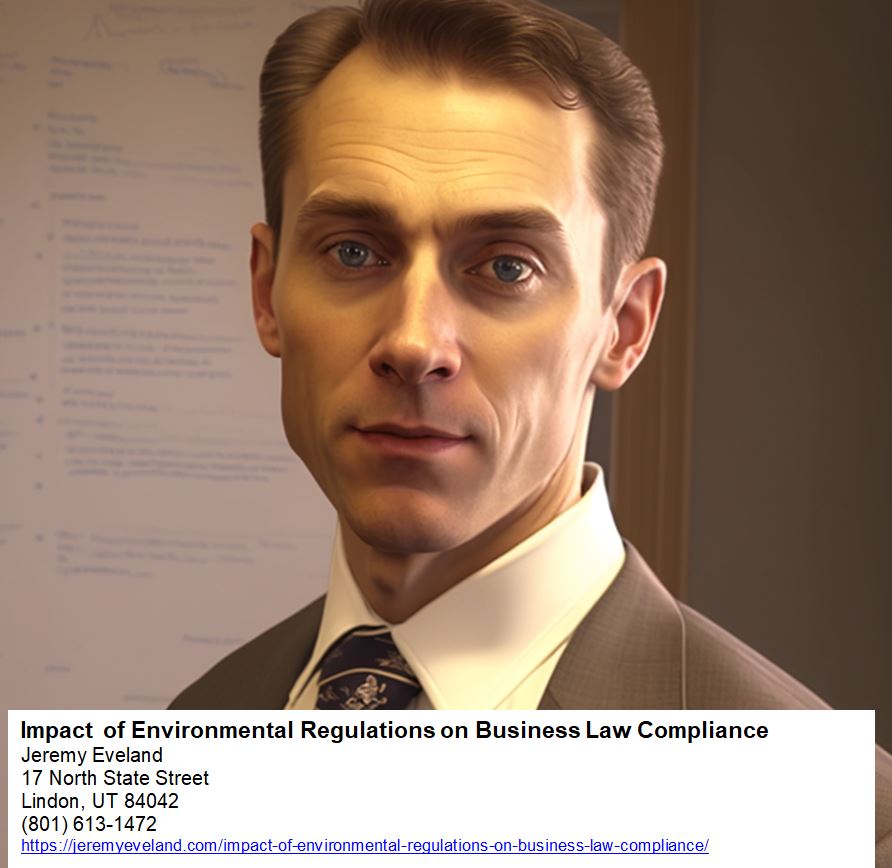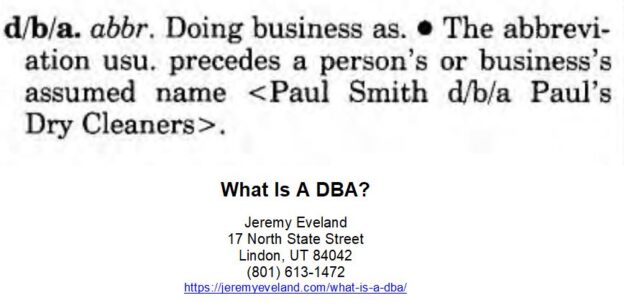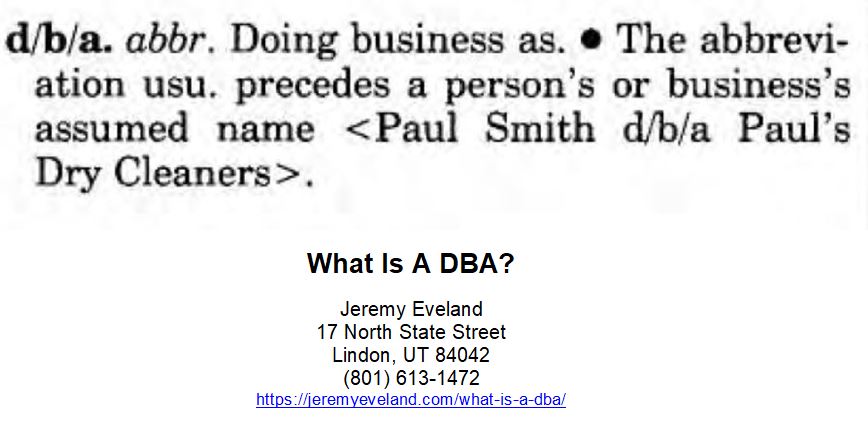Starting a non-profit organization can be a great way to give back to your community while pursuing your passion. Non-profits are organizations that are formed for the purpose of providing social, educational, religious, or other services without the intent of making a profit. They are tax-exempt under section 501(c)(3) of the Internal Revenue Code and must operate exclusively for charitable or educational purposes.
If you’ve been thinking about starting a non-profit in Utah, there are many reasons why it could be a great idea. Utah is known for its strong sense of community and volunteerism, making it an ideal place to launch a non-profit organization.
Before diving into the steps involved in starting a non-profit in Utah, it’s important to understand what exactly a non-profit organization is and what its purpose is. As mentioned earlier, non-profits operate with the goal of providing services or benefits to their community without generating profit.
Explanation of What A Non-Profit Organization Is
Non-profits have at their core a mission statement that outlines their goals and objectives. These statements often speak to the values and beliefs that guide their work.
Some examples include organizations aimed at animal welfare, environmental protection, healthcare access and public health research among others. One key difference between starting a for-profit versus nonprofit organization is funding sources: While for-profits rely on revenue generated from sales or investments, nonprofits may seek donations from individuals or grants from foundations based on their mission statement
Because they do not operate with profit in mind, nonprofits play an important role in filling gaps in society where government provisions may not reach (or be able to reach).
In addition to providing critical services such as healthcare access or essential goods like food pantries or clothing closets, nonprofits also contribute toward more intangible goods such as art, culture and education.
Reasons for starting a non-profit in Utah
Utah is a state that is full of people who are dedicated to their communities. The spirit of volunteerism runs deep in Utah, making it an ideal place to start a non-profit organization. There are also many other reasons why starting a non-profit in Utah can be beneficial.
Nonprofits often provide critical services that may not be available through other means. Educational opportunities, healthcare access and environmental protection are just some examples of valuable initiatives that can be delivered through the nonprofit sector.
In addition to these benefits, there are also tax incentives that can make it easier to get started with a nonprofit organization. Nonprofits are tax-exempt under Section 501(c)(3) of the Internal Revenue Code which means they pay no federal income tax on donations or other revenue received from their work.
Overview of the steps involved in starting a non-profit
Starting a non-profit can seem overwhelming at first glance, but breaking down the process into manageable steps makes it more approachable. Here’s an overview of what you’ll need to do: 1. Research and Planning: Identify your mission statement and conduct market research.
- Legal Requirements: Register your organization with the Utah Division of Corporations and Commercial Code (DCCC) and apply for tax-exempt status with the Internal Revenue Service (IRS). 3. Governance and Management: Establishing bylaws and policies; creating partnerships with local organizations; developing fundraising strategies
4.Marketing & Public Relations : Developing marketing plans to promote your nonprofit’s mission, goals, programs, services. With these key steps in mind, let’s dive deeper into what each section entails so you can understand them better before moving on to more detailed discussions within each section itself!
Research and Planning
A non-profit organization is a business or entity that operates for a social or community cause. Before starting a non-profit, it is essential to identify the need in the community, develop a mission statement, and strategic plan to achieve your goals. In this section of the article, we will discuss how to research and plan your non-profit.
Identifying the Need for Your Non-Profit
The first step in starting a non-profit is identifying the need for your organization. Determine what problem you want to address and how you can contribute to solving it. You can identify this by looking at issues that affect your community, such as homelessness, poverty, illiteracy, or environmental issues.
Once you have identified the problem you want to solve, research existing organizations addressing similar issues in your area. Find out their strengths and weaknesses so you can tailor your approach accordingly.
Conducting Market Research and Analyzing Competition
Conducting market research is an essential step in starting any organization. It will help you understand potential supporters/donors/customers’ needs and expectations while also understanding current trends around your chosen topic.
You should look closely at any relevant data available on demographics affected by the issue(s), consumer habits (in terms of donations), etc. You should also conduct competitive analysis on other organizations addressing similar problems – their structure/governance/finances/programs/services/etc.. This will provide valuable insight into what’s already being done (and what’s effective), giving ideas for how best to contribute with minimal overlap/cannibalization of resources.
Developing A Mission Statement
A mission statement conveys why an organization exists – its purpose – who it helps – its target beneficiaries- , and how it aims to accomplish its goals. It is a key element of every non-profit organization.
When developing your mission statement, consider the needs you identified earlier, the gaps in existing services, and how your organization can fill those gaps. Keep in mind that an effective mission statement should be concise, clear, and memorable.
Developing A Strategic Plan
Your strategic plan spells out your organization’s goals and objectives for the next few years. It outlines how you will achieve them by evaluating resources available (human expertise), assets (funding sources), communication channels (awareness campaign), etc.
The plan should include achievable targets with specific tasks and outcomes defined, along with a timeline for these activities. Creating an annual budget based on expected revenue streams is also essential to help manage operations effectively.
When creating your strategic plan, be sure to involve other stakeholders such as experts in relevant fields or community members who have first-hand experience on addressing similar issues. This will help ensure that the plan is well-informed and inclusive of all perspectives.
Effective research and planning are critical steps in laying the foundation for a successful non-profit organization. The more time and effort you put into these stages before launching your non-profit, the better equipped you’ll be to overcome obstacles along the way while providing genuine relief to those who need it most.
Legal Requirements
Choosing a Name for Your Organization
The name of your non-profit organization is an important aspect that will impact your branding, marketing, and legal filings. It should reflect the mission and values of your organization and be easy to remember and pronounce.
Before choosing a name, it’s essential to conduct a thorough search to ensure that it is not already in use by another organization in Utah. You can check the availability of your preferred name by conducting a business entity search on the Utah Division of Corporations and Commercial Code (DCCC) website.
Registering Your Organization with DCCC
After selecting a unique name, you must register your non-profit with the DCCC. You can do this online, by mail or in-person at their office in Salt Lake City. The registration process requires you to provide basic details about your organization, such as its purpose or mission statement, registered agent information, director names and contact details.
In addition to registering with DCCC, non-profits must also obtain an Employer Identification Number (EIN) from the Internal Revenue Service (IRS). This number allows for tax identification purposes if you plan on hiring staff members or opening bank accounts.
Applying for Tax-Exempt Status with IRS
To qualify for tax exemption status under section 501(c)(3) of the Internal Revenue Code, you must apply to IRS within 27 months after formation date. There are several steps involved when applying for tax-exempt status: -Complete Form 1023: This form requires detailed information about your organization’s history, governance structure, finances and programs.
-Pay Filing Fees: The IRS requires filing fees based on your organization’s gross receipts. -Provide Supporting Documents: Depending on your activities and operations as a nonprofit organization,you may be required to provide additional documentation.
Once the IRS approves your application, you will be granted tax-exempt status for federal income tax purposes. This also means you can receive contributions that are tax-deductible for donors.
Conclusion
Starting a non-profit organization requires completing numerous legal and administrative tasks. Ensuring that your organization is legally registered with the relevant state and federal agencies, choosing a unique name, and obtaining tax-exempt status are important steps towards creating sustainability for your organization’s success. Taking care of these points will give confidence to your donors as well as help you achieve eligibility towards applying for grants or other funding opportunities.
Governance and Management
Starting a non-profit organization requires a well-structured governance and management system. Non-profits are run by a board of directors, which is responsible for providing overall strategic direction to the organization. A well-structured board can make or break the success of your non-profit.
Establishing a Board of Directors
When establishing your board of directors, you should focus on finding individuals who are passionate about your mission and who bring relevant skills to the table. Look for people with expertise in areas such as finance, fundraising, legal affairs, marketing, public relations or other fields that will benefit your organization. It’s important to have diversity on your board including representation from different genders, ages, races and backgrounds.
This will help ensure that your organization is inclusive and sensitive to all members of the community you serve. Once you’ve identified potential board members, it’s important to build relationships with them before asking them to join.
Invite them to events or meetings so they can get a feel for what your organization does and how it operates. This will help ensure that they’re fully invested in your mission before making a commitment.
Developing Bylaws
Bylaws are the rules by which an organization governs itself. They outline procedures for electing officers/board members; holding meetings; voting on issues; financial management; fundraising activities etc. When developing bylaws for your non-profit organization in Utah make sure that they comply with state law requirements.
You can find guidelines online or seek legal counsel if needed. It’s also important to include provisions regarding conflicts of interest so that all decisions made by the board are transparent and unbiased.
Creating Policies & Procedures
Policies and procedures provide detailed instructions on how day-to-day activities should be performed within an organisation e.g hiring practices, financial procedures etc. Creating policies and procedures for your non-profit can help ensure that all operations are conducted consistently and effectively.
Develop policies and procedures that are specific to the needs of your organization, but remember to keep them flexible enough to adapt as the organization evolves. Some policies and procedures you may want to consider include: fundraising policies, conflict of interest policies, volunteer management procedures, event planning guidelines etc.
Training & Recruitment
Once your board is established and bylaws and policies are in place, it’s important to provide training for all board members. This can include orientation on what’s expected of them as board members; financial management training; legal compliance; fundraising techniques etc. Recruiting volunteers is also a crucial aspect of governance and management.
Volunteers bring additional skills, passion, and resources to support the work of your organization. Develop a volunteer recruitment plan that includes outreach activities such as advertising events or solicitations for donations.
Evaluating Your Governance & Management System
Evaluating your governance system is essential for ensuring that your organization remains effective over time. Conduct periodic evaluations of board performance; assess whether bylaws are still relevant; review policies & procedures regularly to ensure they’re up-to-date with best practices etc. Conclusion
Establishing an effective governance and management system lays a strong foundation for the success of any non-profit organization. Investing time in developing processes and systems will pay off in the long run by helping you attract talented individuals who share your passion for making a difference in Utah communities.
Fundraising
Creating a Fundraising Strategy
One of the biggest challenges for any nonprofit is to find funding to support its mission. Developing a fundraising strategy is an essential aspect of starting a nonprofit in Utah.
Consider the following when creating your fundraising plan: 1. Start with identifying your organization’s financial goals and the budget required to achieve them.
- Create a list of potential donors, including individuals, corporations, foundations, and government agencies. 3. Develop an outreach plan that includes targeted email campaigns, direct mailings, social media outreach, and event marketing.
- Develop strategies that encourage regular donations from supporters through programs such as monthly giving or planned giving. 5. Evaluate the effectiveness of your fundraising efforts regularly and adjust as needed to ensure you meet your goals.
Applying for Grants
Another potential source of funding for nonprofits is through grants from government agencies and private foundations. Applying for grants can be challenging but can provide significant financial support for your organization’s mission. 1. Research grant opportunities that align with your organization’s mission.
- Develop a compelling grant proposal that highlights the need for your organization’s work and how it will benefit the community. 3. Ensure you meet all eligibility requirements before applying.
- Submit proposals well before deadlines to allow time for review. 5. Follow up with funders after submission to build relationships and strengthen future grant applications.
Creating Partnerships
Collaborating with other organizations can help nonprofits increase their reach and impact, expand their resources, and tap into new funding sources while avoiding duplication of services in their communities. 1.Look for organizations with similar missions or complementary services either regionally or nationally.
2.Develop collaborative proposals that outline how each partner will contribute its resources and expertise toward achieving specific objectives. 3.Carefully craft partnership agreements that cover issues such as intellectual property, data sharing, and liability.
4.Regularly evaluate the partnership’s effectiveness to ensure it meets the goals of all parties involved. 5.Celebrate successes together and learn from challenges to strengthen future partnerships.
Conclusion: Fundraising Made Easier
While fundraising can be a challenge, effective strategies can help nonprofits access the resources they need to achieve their missions. By developing a comprehensive fundraising plan that includes outreach, grants submissions, and partnerships, new nonprofits can increase their chances of success.
Don’t forget to adjust your plan regularly based on results and always be open to new opportunities for collaboration. The key is persistence and consistency in your fundraising efforts.
Marketing & Public Relations
Developing Marketing Plans to Promote Your Nonprofit’s Mission, Goals, Programs, Services, Events, Activities, etc.
Marketing is an essential aspect of any non-profit organization. It helps to promote the mission and goals of your organization to potential supporters and stakeholders.
Developing a marketing plan can help you identify your target audience and create effective strategies to reach them. When creating a marketing plan for your non-profit, it is crucial to focus on the following:
– Defining your target audience: Identify the people or groups who are most likely to support your organization’s mission. – Creating clear messaging: Develop a compelling message that resonates with your target audience.
– Choosing effective channels: Select the channels that best reach your target audience. – Measuring success: Establish metrics for measuring the success of your marketing efforts.
Building Relationships with Media Outlets to Spread Awareness about Your Nonprofit’s Work
Media coverage is an excellent way to increase awareness about your non-profit’s work. Building relationships with media outlets can ensure that they cover your organization’s activities and events. Here are some tips for getting media coverage:
– Develop relationships with reporters: Reach out to reporters who cover stories related to what you do and introduce them to what you do. – Create press releases: Send press releases announcing important updates or events at least two weeks before they take place.
– Be responsive and available: Make sure someone is always available when media outlets try contacting you. Remember that building relationships takes time, so be patient yet persistent in getting the attention of journalists.
Creating Social Media Profiles To Engage With Supporters
Social media platforms such as Facebook, Twitter, Instagram can be powerful tools for reaching out directly to supporters. You can use social media platforms in several ways:
– Share content from other sources related or relevant to your nonprofit’s work. – Share updates on upcoming events and activities.
– Create engaging content that tells the story of your organization. – Use social media ads to target specific audiences.
Social media also provides an opportunity to create a community around your organization. Encourage your supporters to share their experiences with your non-profit and use hashtags related to your mission.
Marketing and public relations are essential for creating awareness about a non-profit organization’s mission, goals, services, events, and activities. Developing a comprehensive marketing plan will help you identify the right channels for reaching out to potential supporters.
Building relationships with media outlets is an effective way to reach a broader audience by getting press coverage of your nonprofit’s work. Using social media platforms can provide a direct connection between you and supporters and help create communities around the organization.
Conclusion
Starting a non-profit organization in Utah can seem like a daunting task, but with the right preparation and guidance, it is possible to create a successful and impactful organization. By identifying the need for your non-profit, conducting thorough research and planning, meeting legal requirements, establishing effective governance and management structures, developing fundraising strategies, and implementing targeted marketing and public relations plans, you can create a strong foundation for your organization’s future success.
It is important to keep in mind that starting a non-profit requires dedication and passion for your cause. It will take time to build relationships with donors, volunteers, and community partners.
However, by staying focused on your mission statement and strategic plan, you can make a significant difference in the lives of those you serve. Remember that starting a non-profit is not an end goal; it is just the beginning of your journey.
As your organization grows and evolves over time, it is essential to remain flexible and open to change. By remaining committed to your vision while also adapting to new challenges as they arise, you can achieve greater impact in serving your community.
We encourage anyone interested in starting a non-profit organization in Utah to seek out resources such as local nonprofits or consulting firms who specialize in nonprofit development. These resources can provide valuable guidance on everything from developing grant proposals to building effective marketing campaigns.
Starting a nonprofit organization in Utah requires hard work but can be tremendously rewarding for those who are passionate about their cause. With careful planning and dedication to success over time through trial-and-error processes adjusting strategies where necessary when needed., one can make significant progress towards achieving their goals while also making positive change possible within their respective communities or otherwise contribute towards positively impacting society at large if such objectives align with one’s mission statement or strategic plan.
Areas We Serve
We serve individuals and businesses in the following locations:
Salt Lake City Utah
West Valley City Utah
Provo Utah
West Jordan Utah
Orem Utah
Sandy Utah
Ogden Utah
St. George Utah
Layton Utah
South Jordan Utah
Lehi Utah
Millcreek Utah
Taylorsville Utah
Logan Utah
Murray Utah
Draper Utah
Bountiful Utah
Riverton Utah
Herriman Utah
Spanish Fork Utah
Roy Utah
Pleasant Grove Utah
Kearns Utah
Tooele Utah
Cottonwood Heights Utah
Midvale Utah
Springville Utah
Eagle Mountain Utah
Cedar City Utah
Kaysville Utah
Clearfield Utah
Holladay Utah
American Fork Utah
Syracuse Utah
Saratoga Springs Utah
Magna Utah
Washington Utah
South Salt Lake Utah
Farmington Utah
Clinton Utah
North Salt Lake Utah
Payson Utah
North Ogden Utah
Brigham City Utah
Highland Utah
Centerville Utah
Hurricane Utah
South Ogden Utah
Heber Utah
West Haven Utah
Bluffdale Utah
Santaquin Utah
Smithfield Utah
Woods Cross Utah
Grantsville Utah
Lindon Utah
North Logan Utah
West Point Utah
Vernal Utah
Alpine Utah
Cedar Hills Utah
Pleasant View Utah
Mapleton Utah
Stansbury Par Utah
Washington Terrace Utah
Riverdale Utah
Hooper Utah
Tremonton Utah
Ivins Utah
Park City Utah
Price Utah
Hyrum Utah
Summit Park Utah
Salem Utah
Richfield Utah
Santa Clara Utah
Providence Utah
South Weber Utah
Vineyard Utah
Ephraim Utah
Roosevelt Utah
Farr West Utah
Plain City Utah
Nibley Utah
Enoch Utah
Harrisville Utah
Snyderville Utah
Fruit Heights Utah
Nephi Utah
White City Utah
West Bountiful Utah
Sunset Utah
Moab Utah
Midway Utah
Perry Utah
Kanab Utah
Hyde Park Utah
Silver Summit Utah
La Verkin Utah
Morgan Utah
How To Start A Non-Profit In Utah Consultation
When you need help on How To Start A Non-Profit In Utah call Jeremy D. Eveland, MBA, JD (801) 613-1472 for a consultation.
Jeremy Eveland
17 North State Street
Lindon UT 84042
(801) 613-1472
Related Posts
Estate Planning Salt Lake City Utah
Business Succession Lawyer Holladay Utah
Corporate and Business Law in Utah
Does Starting My Own Business Mean I Get A Corporation Automatically?
Impact of Environmental Regulations on Business Law Compliance
Business Lawyer South Jordan Utah
Business Lawyer Millcreek Utah
Business Lawyer Taylorsville Utah
How Artificial Intelligence is Shaping the Future of Business Law
Estate Planning is Crucial for People of All Income Levels
Navigating Legal Challenges in Business Succession Planning
Business Lawyer Bountiful Utah
How To Structure A Merger Or Acquisition In Utah
How To Hire Employees Legally in Utah
10 Tips for Negotiating Lease Agreements


